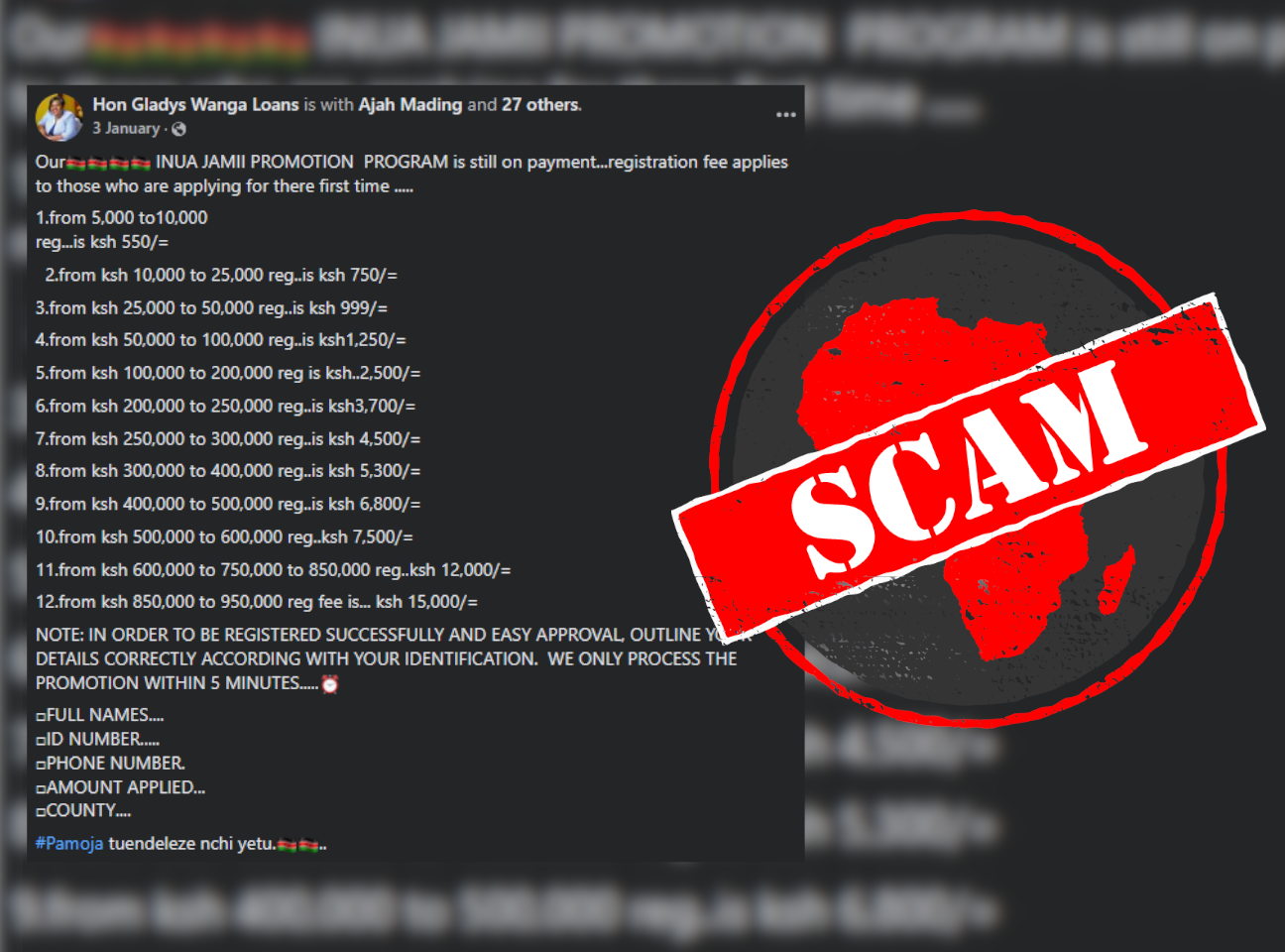IN SHORT: Scammers often use the names of prominent people in society to defraud unsuspecting members of the public. A Facebook account offering loans in the name of Kenyan governor Gladys Wanga should be ignored.
The Facebook account Hon Gladys Wanga Loans is offering loans to Kenyans on Facebook.
The account uses the name and photos of Kenyan politician Gladys Wanga, who serves as the governor of Homa Bay county.
The account asks applicants to provide their personal details such as name, identity number and location, as well as the amount they'd like to borrow.
The offers have been posted here, here, here, here and here.
But is the account and its offers legit? We checked.

Ignore fake account
The poor writing in the account’s posts is the first sign that the ads are a scam. A prominent Kenyan governor would probably invest in a professional social media management team or at least have a member of staff responsible for her public statements. She wouldn't publish content with random capitalisation, misspellings and odd punctuation.
We noticed that the Facebook account started posting loan offers on 9 December 2023. It is unlikely that the governor, who has been in office since 25 August 2022, would own such a relatively new social media account and use it to offer loans.
The account claims that the loans are from Inua Jamii, the Kenyan government programme that provides cash grants to poor and vulnerable people. But the programme does not give out loans.
The account's request to communicate privately via WhatsApp may be an attempt to scam users or steal their personal information.
Wanga’s official page is Governor Gladys Wanga. It is verified by Meta and has 409,000 followers. There are no loan offers on her verified page.
The account in question is fake and its offers are a scam.
Africa Check has previously exposed Facebook accounts impersonating the governor here and here. Read our guide to Facebook scams and how to spot them here.
Republish our content for free
For publishers: what to do if your post is rated false
A fact-checker has rated your Facebook or Instagram post as “false”, “altered”, “partly false” or “missing context”. This could have serious consequences. What do you do?
Click on our guide for the steps you should follow.
Publishers guideAfrica Check teams up with Facebook
Africa Check is a partner in Meta's third-party fact-checking programme to help stop the spread of false information on social media.
The content we rate as “false” will be downgraded on Facebook and Instagram. This means fewer people will see it.
You can also help identify false information on Facebook. This guide explains how.




Add new comment